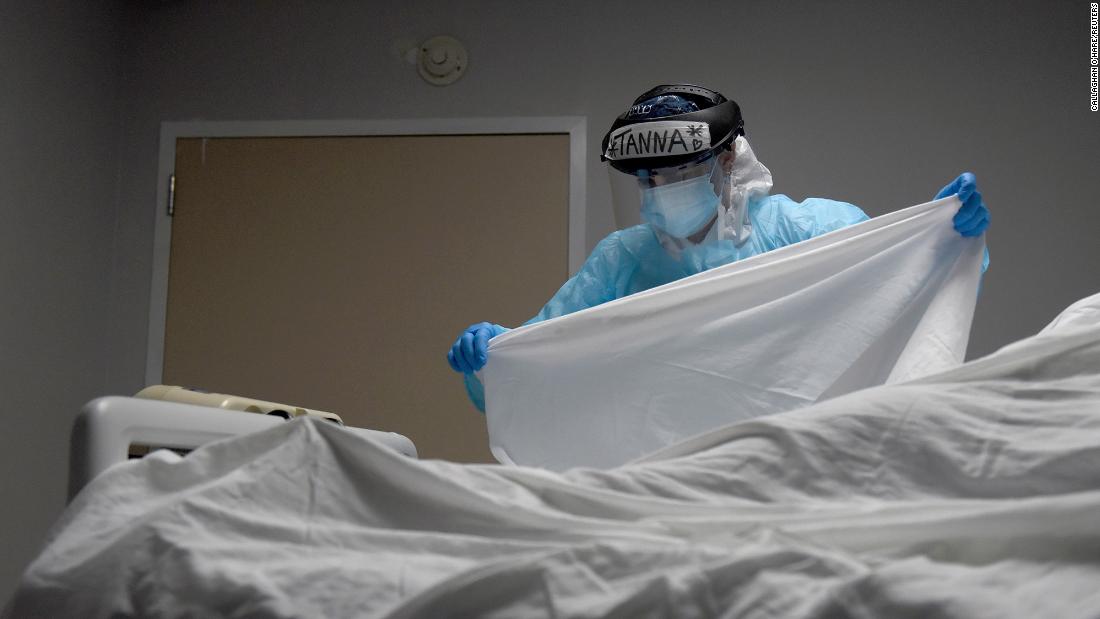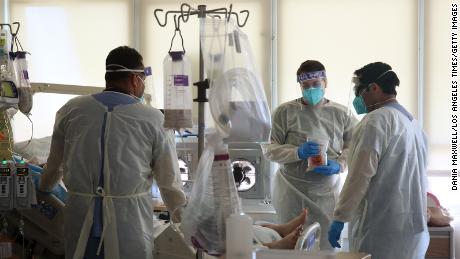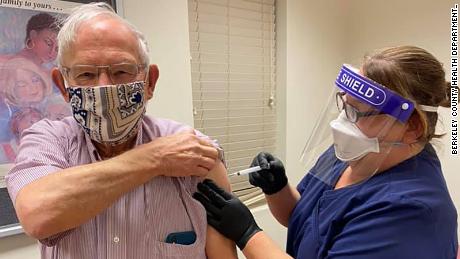You may not get Covid-19, but you could still feel the effects it’s having on US hospitals if you’re in an accident or get sick, doctor warns
“If you are in a car accident, you’re going to want us to save your life,” said Dr. Brad Spellberg, chief medical officer at the Los Angeles County-University of Southern California Medical Center.
“If you have a heart attack or a stroke, you’re going to want to an ICU bed with trained ICU nurses and physicians who are not caring for 20 other patients at the same time.”
“We are seeing people who have gathered for Thanksgiving, or who have gathered for other reasons (and) didn’t truly understand, even to this point, what was at stake,” Spellberg said.
“This is about total collapse of the health care system if we have another spike,” Spellberg said.
“And we, in the hospital, cannot stop that. We can only react to it. It is the public that has the power to put a stop to the spread of this virus by obeying the public health guidance that have been put out.”
Offices and a break room turn into patient rooms
California emergency officials said hospitals are treating an “unprecedented” number of Covid-19 patients, and “the internal oxygen delivery systems built into many older hospitals are being overtaxed by the volume of oxygen flow required to treat patients with respiratory issues that arise from Covid-19.”
Design and construction experts from the US Army Corps of Engineers have been deployed to the Los Angeles area to “evaluate and where necessary upgrade oxygen delivery systems” at about a half dozen hospitals.
But the volume of patients has been overwhelming.
“We entered a hospital (Mission Community Hospital in Panorama City), and they converted their administrative offices into treatment areas for Covid-19 patients,” Balten said.
On one entire floor, “they also treated Covid-19 patients in a revamped break room,” she said.
A difficult start to the new year
As Americans rang in the new year, more than 10,000 families grieved the new loss of a loved one to Covid-19.
Arkansas reported more than 4,300 new cases Friday.
Texas health officials reported record-high Covid-19 hospitalizations across the state for the fifth day in a row, with more than 12,400 patients.
And Georgia announced a new record high of 8,769 new Covid-19 cases in the state Friday.
Gov. Brian Kemp said the Georgia World Congress Center convention center in downtown Atlanta has been turned into an overflow hospital.
New York added almost 16,500 new cases on Friday, only a day after it hit its highest ever one-day case count.
“As we start 2021, I encourage all New Yorkers to look to their better angels and continue the practices we know stop the spread of this virus – wash your hands, socially distance, and wear a mask,” Gov. Andrew Cuomo said in a statement.
Fauci: US will keep giving vaccine doses weeks apart
So far, the vaccines approved in the US require two doses based a few weeks apart. And the US will keep doing it that way, rather than will continue to do it that way and will not follow the UK’s decision to potentially delay second doses, Fauci told CNN on Friday.
“I would not be in favor of that,” Fauci said when asked about the UK’s new dosing regimen. “We’re going to keep doing what we’re doing.”
The UK adopted that strategy in order to give as many people as possible the first dose as quickly as possible, saying that it affords some amount of protection.
“The fact is we want to stick with what the science tells us, and the data that we have for both [vaccines] indicate you give a prime, followed by a boost in 21 days with Pfizer and 28 days with Moderna. And right now, that’s the way we’re going with it, and that’s the decision that is made,” Fauci said.
“We make decisions based on data. We don’t have any data of giving a single dose and waiting for more than the normal period of time” to give the second dose, he added.
CNN’s Elizabeth Cohen, Andrea Diaz, Chuck Johnston, Alexandra Meeks, Cheri Mossburg, Raja Razek, Rebekah Riess and Naomi Thomas contributed to this report.
![]()






